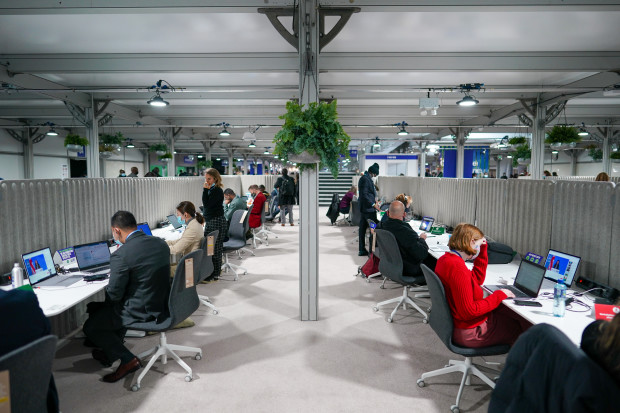
Wall Street and Big Tech want their workers back in the office. Meta (META) -), the Facebook parent, wants employees in the office three days a week, a move that Amazon (AMZN) -) mirrored. But Amazon's CEO Andy Jassy went further, saying that those who defy the new policy likely won't have a future at the company.
Even Zoom (ZOOM) -), that hallmark of remote work, recently issued a new mandate calling all employees within a 50-mile radius back to the office twice a week. Goldman Sachs wants its people back in the office five days a week and JPMorgan has mandated three days a week (but five for managers).
Related: Employment expert breaks down the future of remote work
The vast majority of employees, according to Forbes, have expressed the desire to work remotely at least some of the time.
This conflict between employees, who love the work-life balance of remote work, and employers, who want their people back in their cubicles, has recently become heightened, employment expert Jason Greer, speaking through a remote connection, told CNBC.
"I think fundamentally we're going to have to critically analyze what does the world of work look like now," he said.
Highlighting Goldman and Amazon's controversial positioning, Greer said that at this stage, it's difficult to tell if those models will work long term.
More Employment:
- Employment expert explains why remote work won't last
- Zoom exec defends ironic decision to bring employees back to the office
- Zoom walks back controversial privacy policy
"I don't think there's one size fits all," Greer said. "There's certain industries where it works really well having hybrid or remote work. I think there are other industries where, they say you have to be in the office five days a week, then you come into the office five days a week or you take your talents elsewhere."
This marks a bit of a departure from Greer's comments Aug. 23, in which he stated definitively that a five-day in-office work week is the way of the future: "The days of Covid where we were able to work remotely, they're gone," he said at the time.
A few weeks later, the landscape seems much more nuanced.
"Fundamentally, if you're pushing your employees to come back to the office, you've got to make sure they're coming back to the office for something other than meetings," Greer said.
This is a sentiment echoed by Exos' chief people officer Greg Hill, who told TheStreet that the future of work must be balanced around remote and in-office work, with office days full of intentionality designed for innovation, collaboration and creativity.
"Finding dedicated time for think and work time is as important as finding intentional time for collaboration and direct learning, and that's what we're studying," Hill said. "You'll appreciate working from home a lot more when you go into the office once in a while."
Action Alerts PLUS offers expert portfolio guidance to help you make informed investing decisions. Sign up now.







